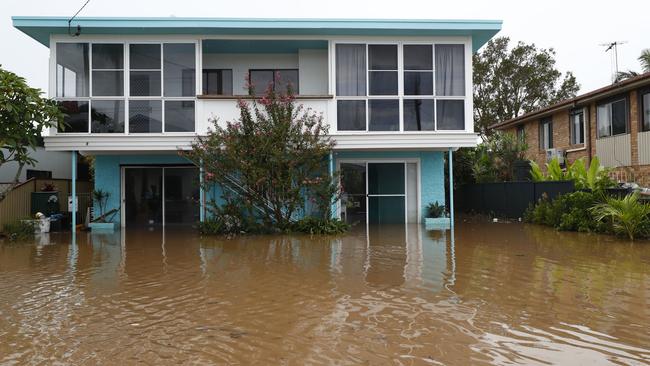
Countless tens of thousands of Australians who work from home maybe jeopardising their home insurance coverage because they have not registered as conducting a business in their residential property and paid the additional premiums.
Late last week I discovered that I had inadvertently placed my home insurance coverage in jeopardy.
My insurer was chosen because they have a good record on payments and probably would have honoured the contract.
But there was no certainty and hundreds of millions of dollars in Australian home insurance premiums are being paid that do not provide secure coverage for the family home.
Some insurers will strike a difference between those who are contractors when they work at home and those who are employed. It’s a fine line and it’s not uniform.
The danger is multiplied by the recent floods, which are causing global reinsurers to demand new conditions on Australian insurance as they seek to cover their losses.
I was alerted to the danger by a reader who was well known me and trusted.
I will first share his experience and then relate my own.
I am not going to name the insurers, but both rank among the biggest in the land.
Experience One (reader):
“A family member saw a story on TV about a month ago where a couple selling eggs from their front gate had their insurance claim for storm damage refused because they were operating a business from home – and I dismissed it as a media beat up.
“However, at my wife’s request, I rang my home insurance provider to check and discovered to my initial delight that I can actually run a consulting business from home because they mark it on the record as being an approved business.
“But if anyone visits me to talk about business, then I am in breach of my insurance contract and not covered for anything – including fire, flood, storm – from that point forward.
“Also the fact that my business insurance includes public liability (including on my property) did not make any difference.
“My business insurance broker said there was probably a misunderstanding and advised I phone the insurer again. This time I asked to speak to a manager and actually spoke to three different people. Same response: If anyone visits my house for a business-related matter, my house insurance is null and void. (Also the fact that I have a home office separate to the house also did not make a difference).
I negotiated to have my home insurance renewed with a clause saying that I would not have any business visitors going forward and I have asked my insurance broker to try and find me a compatible set of house and business insurance.
“I also spoke to one of my subcontractors to let her know, because we often met at each other’s houses. She was already aware of the issue of home businesses as she has friends who trade at local markets – and they are having trouble getting home insurance if they store their stock at home, which most of them do.”
Experience Two (me):
I write most of my comments at home, except when I am on the road.
I occasionally have people coming to my home for work matters.
When the policy was taken out writing from home was rare and I truthfully told my insurer that my dwelling, owned with my wife, was a private residence.
I have not thought to change that status as my working from home increased because it continued to be our residence.
But the reader’s email made me nervous because I had never discussed my changed status with my insurer. Accordingly, I called my insurer.
The first reaction from the insurance executive who answered the phone (promptly) was that in all the circumstances I was fully covered, but he decided to check with his superiors.
He came back with the news that I was probably not covered.
I wasted no time arguing and immediately amended the policy to cover my at-home writing, which involved paying an approximate 10 per cent additional premium.
It was an obvious rip-off because there’s no change in the risks.
Children playing on home computers carry far more risk.
But I didn’t hesitate to immediately pay the extra premium over the phone because the danger of loss was just too great and now the insurance company had warned me that my cover was in jeopardy.
My experience does not mean that all those who work full or part time from home are not covered, but it is clearly a very grey and dangerous area.
So readers should check with their insurer.
If insurers receive large numbers of calls, they will do what they should have done from the beginning and set out clearly and simply their rules for people working at home.
And every insurer will have different rules and the circumstances of each person will be different.
People should be able to select insurers partly on the basis of how they treat people working from home.
The ‘visitor’ experience of my reader is totally ludicrous and means that at least one major insurer has a let-out clause should there be extensive disasters causing them substantial losses.
I shivered at the thought that over many years, I might not have been covered despite paying large premiums.
Fortunately we did not have a major disaster.




The work from home boom carries a danger that a few Australians appreciate.